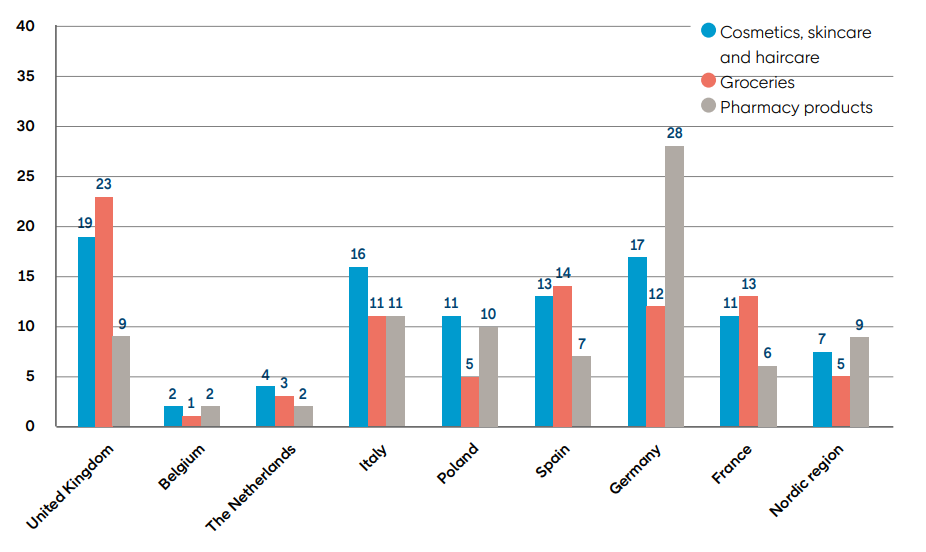Q-commerce: Everything you need to know

Although q-commerce had emerged even before the covid-19 pandemic, the fact is it significantly boosted the growth of this form of online trade. Q-commerce is short for quick commerce – a form of e-commerce that’s based on fast delivery (typically within an hour of placing an order).
What is q-commerce?
Bolt, Glovo, Jokr, Beelivery – these are just four examples of companies operating in the q-commerce sector. If you’ve heard about them (or maybe even ordered something with their help), you already know what q-commerce is about. Q-commerce is a service that enables you to order products from the comfort of your home and receive them in less than an hour, sometimes even around 10 or 20 minutes. In theory, you can order any product using q-commerce, but typically these companies offer groceries, cleaning and beauty products, and medicines (OTC ones, to be exact).
For obvious reasons, the popularity of this form of online trade skyrocketed during covid. For several months, we’ve had limited options of going out; standard stores haven’t worked normally, and everything seemed out of place. In all this craziness, q-commerce enabled many people to order products they needed without the need to leave the house or the apartment. This solution was quick, convenient, and safe (in q-commerce, most orders are paid beforehand, so there is no need for direct contact between the deliverer and the customer).
Europeans buy more groceries, beauty products, and medicines online
There is one more reason behind the popularity of q-commerce. Europeans are now willing to order “q-commerce products” online. In the last year’s report on European e-commerce, we see that groceries, beauty products, and pharmacy products are very popular in online trade, especially in the UK, Spain, France, and Germany:

Source: https://www.postnord.se/siteassets/pdf/rapporter/e-commerce-in-europe-2021.pdf
The business model in q-commerce
In order to work effectively, q-commerce needs specific conditions, business and market-wise. First off, everything is based on a network of deliverers (who work very similarly to couriers) who have to deliver the order quickly. Therefore, typically, they work in a limited area. It’s hard to imagine a courier on a bike or on a motor scooter who usually works in Croydon (the southern district of London) and suddenly has to fulfill an order from Tottenham (the northern district of London). That’s usually impossible to do, even with a car. So, q-commerce drivers generally work within a specific district, no more than a five-six-kilometer radius.
When the order comes in, the deliverer has to get all the products. Typically, they use a network of fulfillment centers and dark stores located nearby the serviced area. In such facilities, they can find around two-three thousand of the most popular products. Sometimes, q-commerce companies cooperate with partner stores as well. For example, Glovo, one of the market leaders, has 7.3k such stores in Poland, 29k in Spain, 19k in Italy, and many more in other countries.
When the products are collected, the courier goes directly to the house/company to deliver the order. Everything takes less than an hour, and in many cases, less than half an hour (bear in mind, the majority of q-commerce companies operate 24/7. In this sector, time is of the essence.
WHERE DOES Q-COMMERCE WORK?
Because of everything we mentioned earlier, q-commerce cannot be implemented anywhere. Typically, this service is available in large and medium cities only. Otherwise, such a service would have never been profitable (because of its nature, q-commerce is based on delivering rather small orders, so AOV – average order value – is quite low). After all, you need couriers and fulfillment centers just to get the service running. And then, there is the question of receiving enough orders every day. It’s hard to imagine there would be enough orders day by day in the small town of Bayeux in northern France (population of around 13,000).
SUPPLEMENT TO STANDARD SHOPPING
Q-commerce will never replace standard weekly shopping, primarily because it has a different goal. You can think of it as your plan B in case of emergency or lack of time. As a result, this service is a good supplement to your normal shopping, both in brick-and-mortar stores and online. Knowing that you can always order food or medicines when you need them, regardless of the time of the day or week, is comforting, and many customers willingly take advantage of this service (according to Statista, 36% of online shoppers also use q-commerce).








